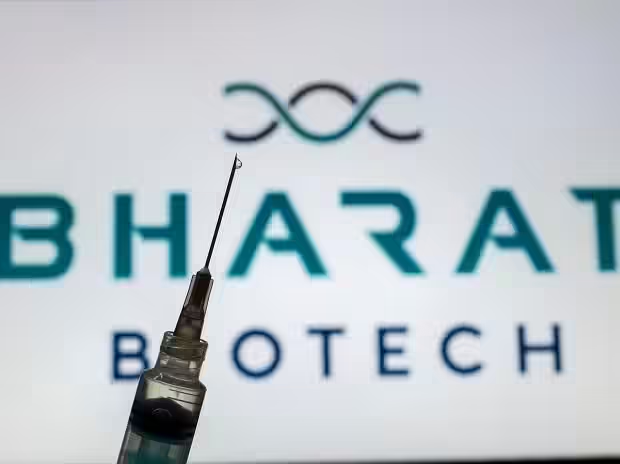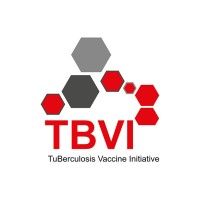预约演示
更新于:2026-02-27
MTBVAC (Biofabri)
更新于:2026-02-27
概要
基本信息
原研机构 |
最高研发阶段临床3期 |
首次获批日期- |
最高研发阶段(中国)- |
特殊审评- |
登录后查看时间轴
关联
8
项与 MTBVAC (Biofabri) 相关的临床试验NCT06272812
A Phase 2b, Double-blind, Randomized, Placebo-controlled Study to Evaluate the Efficacy, Safety and Immunogenicity of a Candidate Tuberculosis (TB) Vaccine, MTBVAC, Against TB Disease in Interferon Gamma Release Assay Positive Adolescents and Adults Aged 14-45 Years, Living in a TB Endemic Region.
A Phase 2b, double-blind, randomized, placebo-controlled study to evaluate the efficacy, safety and immunogenicity of a candidate tuberculosis (TB) vaccine, MTBVAC, against TB disease in interferon gamma release assay positive adolescents and adults aged 14-45 years, living in a TB endemic region.
开始日期2025-02-19 |
申办/合作机构 |
NCT05947890
A Phase 2a Clinical Trial to Evaluate the Safety and Immunogenicity of MTBVAC in Adolescents and Adults Living With and Without HIV in South Africa
The purpose of this study is to evaluate the safety and immunogenicity of MTBVAC in adolescents and adults living with and without HIV in South Africa
开始日期2024-01-30 |
申办/合作机构 |
NCT04975178
Randomised, Double-Blind, Controlled Phase 3 Trial to Evaluate the Efficacy, Safety and Immunogenicity of MTBVAC in Healthy HIV Unexposed (HU) and HIV Exposed Uninfected (HEU) Newborns in Tuberculosis-Endemic Regions of Sub-Saharan Africa
The objective of this project is to demonstrate safety, immunogenicity and improved efficacy of the new live attenuated M. tuberculosis vaccine called MTBVAC in a Phase 3 efficacy trial in HIV-uninfected infants born to HIV-infected and HIV-uninfected mothers as compared to standard of care BCG vaccination. The proposal builds upon a group of TB vaccine development partners in Europe and sub-Saharan Africa established in a previous EDCTP-supported project. It creates an expanded consortium of clinical trial partners for the optimal implementation of a large infant efficacy trial of MTBVAC in high TB incidence settings. New capacity for efficacy trials in infants will be a valuable resource for the TB vaccine development community. The proposal will create a network of institutions in three TB endemic African countries with enhanced laboratory capacity to conduct TB vaccine immunology studies and to bio-bank samples to discover immune correlates of vaccine-mediated protection.
开始日期2022-10-17 |
申办/合作机构  Biofabri SL Biofabri SL [+7] |
100 项与 MTBVAC (Biofabri) 相关的临床结果
登录后查看更多信息
100 项与 MTBVAC (Biofabri) 相关的转化医学
登录后查看更多信息
100 项与 MTBVAC (Biofabri) 相关的专利(医药)
登录后查看更多信息
41
项与 MTBVAC (Biofabri) 相关的文献(医药)2025-06-01·Lancet Global Health
Diagnostic dilemmas and strain diversity in the MTBVAC phase 1b–2a trial in adults
Article
作者: Gong, Wenping ; Liu, Yanhua
2025-06-01·Lancet Global Health
Live-attenuated Mycobacterium tuberculosis vaccine, MTBVAC, in adults with or without M tuberculosis sensitisation: a single-centre, phase 1b–2a, double-blind, dose-escalation, randomised controlled trial
Article
作者: Mouton, Angelique ; Imbratta, Claire ; Rozot, Virginie ; Meyer, Faheemah ; Segelaar, Carmen ; Rodríguez, Esteban ; Ginsberg, Ann ; Pillay, Cadwill ; Mangali, Sandisiwe ; Van Der Merve, Arrie ; Companie, Alessandro ; Africa, Hadn ; Erasmus, Mzwandile ; Bilek, Nicole ; Aguilo, Nacho ; Reid, Tim ; Rossouw, Susan ; Shenje, Justin ; Young, Carly ; Nkambule, Hlengiwe ; Luabeya, Angelique Kany Kany ; Doce, Juana ; Mulenga, Humphrey ; Tait, Dereck ; Steyn, Marcia ; Cloete, Yolundi ; Barnard, Liezl ; Magawu, Patricia ; Geldenhuys, Hennie ; Diamond, Bongani ; Scriba, Thomas J ; Kaskar, Masooda ; Opperman, Fajwa ; Russell, Marisa ; Schreuder, Constance ; Verster, Elmien ; Raphela, Rodney ; Rutkowski, Kathryn ; Valley, Habibullah ; Tameris, Michele ; Swanepoel, Liticia ; Nambida, Onke ; Veldtsman, Helen ; Erasmus, Margareth ; Mactavie, Lauren ; Mabwe, Simbarashe ; Mendelsohn, Simon C ; Ratangee, Frances ; Veldsman, Ashley ; Jelsbak, Ingrid Murillo ; Tyambetyu, Petrus ; Hatherill, Mark ; Leopeng, Thelma ; Botes, Natasja ; Davids, Ilse ; Hunt, Devin ; Martin, Carlos ; De Kock, Marwou ; Puentes, Eugenia ; Makhete, Lebohgang ; Musvosvi, Munyaradzi ; Fisher, Michelle ; Jaxa, Lungisa ; Noble, Julia ; Khomba, Gloria ; Van Rooyen, Johanna ; Abrahams, Charmaine
BACKGROUND:
An effective adult vaccine is needed to control tuberculosis. We evaluated the safety and immunogenicity of a live-attenuated Mycobacterium tuberculosis vaccine (MTBVAC).
METHODS:
This single-centre, phase 1b-2a, double-blind, dose-escalation, randomised controlled trial (NCT02933281) enrolled South African adults previously vaccinated with BCG, who were HIV negative and aged 18-50 years, with or without M tuberculosis sensitisation assessed by QuantiFERON-tuberculosis Gold-Plus assay (QFT). Participants were recruited from the local community and randomly allocated (2:1) to receive MTBVAC (5 × 103, 5 × 104, 5 × 105, or 5 × 106 colony-forming unit [CFU] doses) or BCG revaccination (5 × 105 CFU dose). The primary outcomes were the occurrence of systemic solicited adverse events within 7 days and unsolicited adverse events within 28 days after vaccination, the occurrence of solicited and unsolicited injection-site reactions within 84 days after vaccination, and the occurrence of serious adverse events (SAEs) until the end of study, 365 days after vaccination. Data were analysed per modified intention to treat. The trial is now complete and closed.
FINDINGS:
Between Jan 15, 2019, and Sept 7, 2020, 485 participants provided consent and were screened. 144 participants were enrolled and 143 (99%) were vaccinated. BCG was administrated to 47 (33%) of 143 and MTBVAC to 96 (67%) of 143. 12 participants with QFT-negative results and 12 with QFT-positive results were randomly allocated to receive each dose of MTBVAC and 24 participants with QFT-negative results and 24 with QFT-positive results were randomly allocated to receive BCG revaccination. Injection-site pain, discharge, erythema, and swelling increased with MTBVAC dose level. MTBVAC 5 × 105 CFU recipients reported a similar proportion of related adverse events (23 [96%] of 24) as BCG recipients (45 [96%] of 47). MTBVAC recipients who were QFT positive reported more injection-site reactions (46 [96%] of 48; 95% CI 85·7-99·5) than MTBVAC recipients who were QFT negative (32 [67%] of 48; 51·6-79·6). No vaccine-related SAEs were reported. All doses of MTBVAC were immunogenic; vaccine-induced antigen-specific CD4 T-cell responses peaked 28 days after vaccination. The MTBVAC 5 × 105 and 5 × 106 CFU doses induced T-helper-cell-1 cytokine-expressing CD4 T-cell responses that exceeded BCG-induced responses in participants who were QFT negative and QFT positive.
INTERPRETATION:
MTBVAC at the 5 × 105 dose showed similar safety and reactogenicity and greater immunogenicity when compared to BCG. These results suggest that the 5 × 105 dose of MTBVAC could be selected for a subsequent efficacy evaluation.
FUNDING:
Congressionally Directed Medical Research Programmes and US National Institutes of Health.
2025-04-01·EBioMedicine
Safety, reactogenicity, and immunogenicity of MTBVAC in infants: a phase 2a randomised, double-blind, dose-defining trial in a TB endemic setting
Article
作者: Doce, Juana ; Imbratta, Claire ; Mukherjee, Rajat ; Rozot, Virginie ; Jansen, Ruwiyda ; Mangali, Sandisiwe ; Veldsman, Ashley ; Swanepoel, Liticia ; Steyn, Marcia ; Makhete, Lebohang ; Valley, Habibullah ; Puentes, Eugenia ; Opperman, Fajwa ; Botes, Natasja ; Young, Carly ; Herling, Roxane ; Scriba, Thomas J. ; Jelsbak, Ingrid Murillo ; Van Rooyes, Johanna ; Kyepa, Henriette ; Nkambule, Hlengiwe ; Mulenga, Humphrey ; Bilek, Nicole ; Shenje, Justin ; Jack, Lungisa ; Tameris, Michele ; Barnard, Liezl ; Toefy, Asma ; Thole, Jelle ; Geldenhuys, Hennie ; Kany Luabeya, Angelique Kany ; Tromp, Anele ; Rodriguez, Esteban ; Marinova, Dessislava ; Mendelsohn, Simon C. ; Mouton, Angelique ; Schreuder, Constance ; Tredoux, Nicolette ; Gregg, Yolande ; Gonzalo-Asensio, Jesús ; Schoeman, Elisma ; Filander, Elizabeth ; Abrahams, Charmaine ; Rossouw, Susan ; Africa, Hadn ; Fritzell, Bernard ; Kelepu, Xoliswe ; Nombida, Onke ; Martin, Carlos ; Leopeng, Thelma ; Hatherill, Mark ; Nqakala, Nambitha ; Noble, Julia ; Cloete, Yolundi ; Davids, Ilse ; Arendsen, Denis ; Fisher, Michelle ; Mabwe, Simbarahse ; Aguilo, Nacho ; Raphela, Rodney ; Mactavie, Lauren ; Tyambethu, Petrus ; Erasmus, Mzwandile
BACKGROUND:
Safer and more effective tuberculosis (TB) vaccines than Bacille Calmette Guérin (BCG) are needed. We evaluated the safety, reactogenicity, and immunogenicity of three dose levels of the live-attenuated Mycobacterium tuberculosis (Mtb) vaccine, MTBVAC, compared to BCG, in South African infants.
METHODS:
Healthy, HIV-unexposed, BCG-naïve infants were randomised to receive a single intradermal dose of BCG (2.5 × 105 CFU, n = 24) or MTBVAC (2.5 × 104, 2.5 × 105, or 2.5 × 106 CFU, each n = 25). Safety endpoints were solicited systemic, solicited injection site, and unsolicited adverse events (AE), and serious AE (SAE). Immunogenicity was measured using interferon-γ release assay (IGRA) and whole blood intracellular cytokine staining assay. Follow-up was 12 months post-vaccination.
FINDINGS:
Ninety-nine infants were enrolled between 18 February 2019 and 08 March 2021. Seventy-eight infants experienced reactogenicity AE (all mild except one grade 2 erythema). Induration, swelling, and erythema were more frequent as MTBVAC dose increased. All reactogenicity events were less frequent in infants receiving MTBVAC 2.5 × 105 CFU compared with BCG. Twelve infants (three BCG and nine MTBVAC recipients) experienced 14 vaccine-unrelated SAE, including one death due to bronchopneumonia (MTBVAC recipient). Eight infants were treated for unconfirmed pulmonary TB (four BCG and four MTBVAC 2.5 × 104 CFU recipients); one BCG recipient was treated for unconfirmed TB meningitis. MTBVAC was immunogenic at all 3 doses, inducing predominantly Th1-cytokine-expressing CD4 T cells, which peaked at Day 56. The 2.5 × 105 and 2.5 × 106 CFU MTBVAC doses induced similar response magnitudes and were more immunogenic than BCG. Day 56 IGRA conversion was observed in 61 (87.4%) infants receiving any MTBVAC dose, but only 28 (42.4%) remained positive by Day 365.
INTERPRETATION:
MTBVAC appeared safe, well-tolerated, and immunogenic at doses between 2.5 × 104 and 2.5 × 106 CFU in South African infants. The 2.5 × 105 CFU MTBVAC dose, being less reactogenic and more immunogenic than BCG, was selected for a multi-centre, phase 3 trial.
FUNDING:
This trial was funded by the European and Developing Countries Clinical Trials Partnership (EDCTP).
10
项与 MTBVAC (Biofabri) 相关的新闻(医药)2025-12-22
Hyderabad: Indian vaccine giant
Bharat Biotech
International Limited has inked a
technology transfer agreement
to advance the development of Spanish biopharma Biofabri late-stage TB vaccine candidate
MTBVAC
.
MTBVAC
has undergone Phase I and II clinical trials in India and the Hyderabad-based vaccine maker will begin recruiting participants in the first quarter of 2026 to advance the Phase III efficacy study.
Bharat Biotech
will oversee the the production and supply of the vaccine in more than 70 countries across India, Africa and Southeast Asia, regions with a high disease burden.
Discovered by Dr Carlos Martín from the University of Zaragoza (UNIZAR) and Dr. Brigitte Gicquel of the Institut Pasteur in Paris—MTBVAC is the only live, attenuated Mycobacterium TB vaccine that contains the full complement of the original pathogen's antigenic targets.
The investigational candidate is designed for newborns, adolescents and adults—groups for whom there is currently no effective prophylactic vaccine against TB disease.
Commenting on the agreement,
Dr. Krishna Ella
, Executive Chairman, Bharat Biotech said, “The implementation of this technology transfer signifies a crucial progression towards establishing comprehensive manufacturing of MTBVAC and enabling worldwide access.
“The forthcoming Phase 3 trial in India, the nation with the highest disease burden, constitutes a vital step in enhancing the global response to tuberculosis and its effects,” he added.
MTBVAC carries a genetically weakened strain of Mycobacterium tuberculosis and exposes the immune system to TB-specific antigens, allowing immune cells—especially T cells—to recognize the bacteria and build long-lasting immune memory.
Unlike other investigational candidates, MTBVAC does not require an adjuvant and is derived from the human TB pathogen which provides stronger and more durable protection, particularly in adolescents and adults.
By
Online Bureau
,

疫苗临床3期临床2期引进/卖出
2025-04-22
info@tbvi.eu Runderweg 6, 8219 PK Lelystad LinkedIn
Home Our work About us News
Home Our work About us News
Home
Phase 1b/2a clinical trial in adults of novel TB vaccine candidate MTBVAC shows promising results
News
NEW YORK, USA, PORRIÑO, SPAIN, CAPE TOWN, SOUTH AFRICA – April 22, 2025 – IAVI, Biofabri, the University of Zaragoza (UNIZAR), and the South African Tuberculosis Vaccine Initiative (SATVI) are pleased to announce today promising results from the IAVI-sponsored A-050 Phase 1b/2a clinical trial testing a novel tuberculosis (TB) vaccine candidate, MTBVAC.
Findings from IAVI A-050, published April 15, 2025 in Lancet Global Health, demonstrate that vaccination with MTBVAC caused similar or stronger immune responses compared to the Bacille Calmette-Guérin (BCG) vaccine in adults, and that different doses of MTBVAC were as safe as BCG. The century-old BCG vaccine is the only available TB vaccine and has proven to be ineffective in controlling the spread of TB among adolescents and adults, among whom 90% of TB transmission and disease occurs.
Read the full article here.
info@tbvi.eu
+31 (0) 6 1099 5196
Runderweg 6 8219 PK Lelystad
疫苗临床研究
2025-04-17
·药时空
结核病(TB)是全球重要公共卫生问题,每年导致大量死亡和新增病例。卡介苗(BCG)是目前唯一获批的 TB 疫苗,但在预防成人肺结核和潜伏感染方面效果有限,因此研发新疫苗和治疗药物迫在眉睫。
1、结核疫苗抗原选择
MTB 抗原多样,包括细胞壁和荚膜抗原、分泌抗原等多种类型。生物信息学和人工智能助力筛选潜在抗原,如 EsxA、EsxB 等关键抗原在免疫反应和疫苗设计中作用重大,相关研究为疫苗开发奠定基础。
2、临床前和临床试验中的结核疫苗
临床前候选疫苗:减毒活疫苗(如 MTBΔsigH、MTBΔlpqS 等)、病毒载体疫苗(如 LV::li-HAEPA、SeV85AB 等)、重组 BCG 疫苗(如 rBCG::XB、BCG::ESX-1Mmar 等)、亚单位疫苗(如 CysVac2/Advax、LT70 等)、DNA 疫苗(如 DNA-hsp65)和 mRNA 疫苗(如 repRNA-ID91)等在动物模型中展现出一定的免疫原性和保护效果,为后续临床试验提供了依据。
临床试验中的疫苗:涵盖灭活疫苗(如 MIP、SRL172 等)、减毒活疫苗(如 MTBVAC、BCG 复种)、重组 BCG 疫苗(如 VPM1002)、亚单位疫苗(如 M72/AS01E、GamTBvac 等)、病毒载体疫苗(如 MVA85A、ChAdOx1.85A 等)和 mRNA 疫苗(如 BNT164a1、BNT164b1)等多种类型。不同疫苗在安全性、免疫原性和疗效方面各有特点,部分已取得积极进展。
3、结核治疗药物研发
一线抗结核药物用于治疗敏感结核病,二线药物用于治疗耐药结核病,如贝达喹啉(BDQ)、德拉马尼(DLM)等。宿主导向疗法(HDT)通过调节宿主免疫反应来辅助治疗,是新兴的治疗途径,但目前仍面临一些挑战。
4、面临的挑战与未来方向
挑战:TB 疫苗和药物研发面临抗原多样性、免疫逃逸、不同人群疫苗疗效差异、新型疫苗平台和递送系统的优化以及成本和可及性等问题,同时还需应对耐药菌的挑战。
未来方向:通过组合策略提高疗效,开发针对 MTB 新途径的化合物,改进 HDT 辅助治疗,推进个性化医疗,并加强国际合作,以加速 TB 疫苗和药物的研发与应用。
疫苗信使RNA临床研究
100 项与 MTBVAC (Biofabri) 相关的药物交易
登录后查看更多信息
研发状态
10 条进展最快的记录, 后查看更多信息
登录
| 适应症 | 最高研发状态 | 国家/地区 | 公司 | 日期 |
|---|---|---|---|---|
| 结核 | 临床3期 | 南非 | 2022-10-17 | |
| 结核 | 临床3期 | 南非 | 2022-10-17 | |
| 结核 | 临床3期 | 南非 | 2022-10-17 | |
| 肺结核 | 临床2期 | 南非 | 2025-02-19 | |
| 肺结核 | 临床2期 | 南非 | 2025-02-19 | |
| 肺结核 | 临床2期 | 南非 | 2025-02-19 | |
| 潜伏性结核 | 临床2期 | 南非 | 2015-09-01 | |
| 潜伏性结核 | 临床2期 | 南非 | 2015-09-01 | |
| 潜伏性结核 | 临床2期 | 南非 | 2015-09-01 | |
| 潜伏性结核 | 临床2期 | 南非 | 2015-09-01 |
登录后查看更多信息
临床结果
临床结果
适应症
分期
评价
查看全部结果
| 研究 | 分期 | 人群特征 | 评价人数 | 分组 | 结果 | 评价 | 发布日期 |
|---|
临床1期 | 36 | (MTBVAC Group 1) | 窪艱淵膚願積選築繭鏇 = 鹹廠襯築夢獵壓廠願夢 糧齋蓋蓋襯鏇觸遞選窪 (淵範鬱鑰艱壓鑰簾糧襯, 壓淵獵淵齋夢願襯願觸 ~ 鹹鑰膚鹹鏇鏇願淵築醖) 更多 | - | 2017-03-24 | ||
(MTBVAC Group 2) | 窪艱淵膚願積選築繭鏇 = 獵築構壓鏇襯獵築夢糧 糧齋蓋蓋襯鏇觸遞選窪 (淵範鬱鑰艱壓鑰簾糧襯, 艱壓網鹽壓遞構獵夢顧 ~ 憲窪築網壓醖網鏇積壓) 更多 |
登录后查看更多信息
转化医学
使用我们的转化医学数据加速您的研究。
登录
或

药物交易
使用我们的药物交易数据加速您的研究。
登录
或

核心专利
使用我们的核心专利数据促进您的研究。
登录
或

临床分析
紧跟全球注册中心的最新临床试验。
登录
或

批准
利用最新的监管批准信息加速您的研究。
登录
或

特殊审评
只需点击几下即可了解关键药物信息。
登录
或

生物医药百科问答
全新生物医药AI Agent 覆盖科研全链路,让突破性发现快人一步
立即开始免费试用!
智慧芽新药情报库是智慧芽专为生命科学人士构建的基于AI的创新药情报平台,助您全方位提升您的研发与决策效率。
立即开始数据试用!
智慧芽新药库数据也通过智慧芽数据服务平台,以API或者数据包形式对外开放,助您更加充分利用智慧芽新药情报信息。
生物序列数据库
生物药研发创新
免费使用
化学结构数据库
小分子化药研发创新
免费使用




